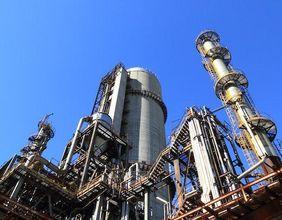Summary
- Covid-19 is having a severe impact on the globally integrated automotive industry of the United Kingdom
- The Tata Group might look for a strategic partner for Jaguar Land Rover (JLR), as a result of the failure in securing a financial rescue package from the UK government
- Brexit had not unduly injured the UK’s standings, it still remains an attractive investment location, stated the Chairman of Tata Sons, Natarajan Chandrasekaran
- Jaguar Land Rover witnessed a decline in the retail sales of 74,067 vehicles falling 42.4 per cent for the period of April to June 2020, on a year-on-year basis
During the underlying crisis of Covid-19 and worldwide lockdowns, business pioneers energized to save their organizations, secure their employees, and keep supply chains moving. Presently, while the world is still reckoning with the human and economic toll of the coronavirus, it is attempting to outline a way to the next normal despite the many unknowns ahead. Never in present day times have so many industries confronted such vulnerability.
For automobile players in the United Kingdom, Covid-19 developed at a difficult time, having led to a swift and severe impact on the globally integrated automotive industry. Disruption in Chinese parts exports, large-scale manufacturing interruptions across Europe, and the closure of assembly plants in the United States placed intense pressure on this sector, which was already coping with a downshift in global demand.
Post January 2020, UK’s international trading relationships were in a flux as the terms, and tariffs of Brexit were being re-defined. The industry was disrupted by new advancements, including automation, electrification, connectivity, and artificial intelligence. In the mean time, developing ecological concerns, changing client inclinations, and the development of shared portability were modifying long-standing demand patterns.
Due to a failure in securing a financial rescue package from the United Kingdom government, Tata group, the Indian multinational business group might look for a strategic partner for Jaguar Land Rover (JLR), and to sell its British steel plant. The European operations of Tata Motor's JLR and Tata Steel's plant have been making losses, hence, the parent companies will have to come up with a solution soon.
JLR, owned by Tata Motors, employs 30,000 people in the UK and is the leading auto manufacturing firm in the UK. Tata Steel Europe has 8,000 people on its payroll in Britain. Both the companies had been looking out for a monetary support from the British government in order to support themselves. However, the discussions fizzled out as the UK government put tough conditions for financial rescue plan including asking JLR to deliver more electric vehicles than diesel vehicles. Now private financing is the only viable option available to JLR.
JLR is confronting a difficult stretch because the coronavirus pandemic has brought about a decline in its sales all around the world. The British auto major has already shed one billion pounds in H1 2020. The Tata Group had initially tried striking for a potential stake deal even before the pandemic but ended up without any conclusion. Liberty House, a company promoted by Sanjeev Gupta, had evinced an interest on collaborating with Tata Steel for its Port Talbot (UK) plant.
Bernstein, a global brokerage had stated that JLR could fetch a valuation of £9 billion, just before the onset of the pandemic.
Many British firms had earlier asked for government support in order to sail through the disruption caused by the coronavirus. The UK Treasury had provided assistant by announcing its plan named “Project Birch” on 25 May 2020. Jaguar had sought a bailout amount of around £1 billion from the government, and Tata Steel had officially quoted that it required an aid of £500 million to survive.
Tata Steel Limited (LON:TTST) stock was trading at USD 5.60 on 17 August 2020, at 1:41 PM, UP by 2.19 per cent from its previous day’s close. The 52-week low/high price was USD 3.10 / 7.04. It was having a market capitalisation (Mcap) of £ 4,709.11 million. The volume traded at the time of reporting was 48,740. The company recorded a negative return on price, which was 19.88 per cent on a YTD (Year to Date) basis.
To know more, do read: Project Birch: UK Government’s Plan to Rescue Large Firms
Chairman of Tata Sons, Natarajan Chandrasekaran said that Brexit had not unduly injured the UK’s standings, and it still remains an attractive investment location. As the UK prepares to resume trade talks with the European Union, Chandrasekaran stated that in the last three to four years, Brexit dealings have had lots of ups and downs, but the world has not been a stable place for the last four years.
Financial Highlights of Jaguar
On 31 July 2020, JLR released its quarterly results for the year FY 2021 for the period of April to June 2020. The Covid-19 pandemic has significantly impacted the business in the first quarter of FY 2021, resulting in temporary retailer and plant shutdowns, impacting the sales and profits. The company witnessed a decline in the retail sales of 74,067 vehicles falling 42.4 per cent year-on-year, but improved month-by-month through the quarter with June 2020 down by 24.9 per cent.
The UK market was particularly impacted with industry volumes down by 70.1 per cent for the quarter and Jaguar Land Rover sales down by 69.5 per cent. The company recorded revenue of £2.9 billion and loss before tax of £413 million, incurring £500 million of charge+ cost actions. On 30 June 2020, it had a liquidity worth £4.7 billion, including £2.75 billion of cash and short-term investments and £1.9 billion undrawn credit facility.
Automotive Sector of the UK
The automotive industry of the UK plays an important part in contributing to the UK economy with the turnover of more than £82 billion, and adding £18.6 billion value to it. According to the Society of Motor Manufacturers and Traders (SMMT), the automobile industry accounts for 14.4 per cent of total UK export of goods, worth £44 billion, with a workforce of 168,000 staff employed directly in manufacturing and in excess of 823,000 across the wider automotive industry. It also invests £3.75 billion each year in automotive R&D.
The UK exports eight out of 10 cars produced in the country overseas to 160 different markets worldwide. The country witnessed manufacturing of over 1.3 million cars, 78,270 commercial vehicles, and 2.5 million engines in the year 2019.
To sum up, Jaguar Land Rover released its latest quarterly results for the period ending 30 June 2020 and reported a 42.4 per cent fall in retail sales. While it has not been able to fetch any government aid for itself during these testing times, the company might look for a strategic partner to fetch funds, as the UK still continues to remain an attractive destination for the auto major.





